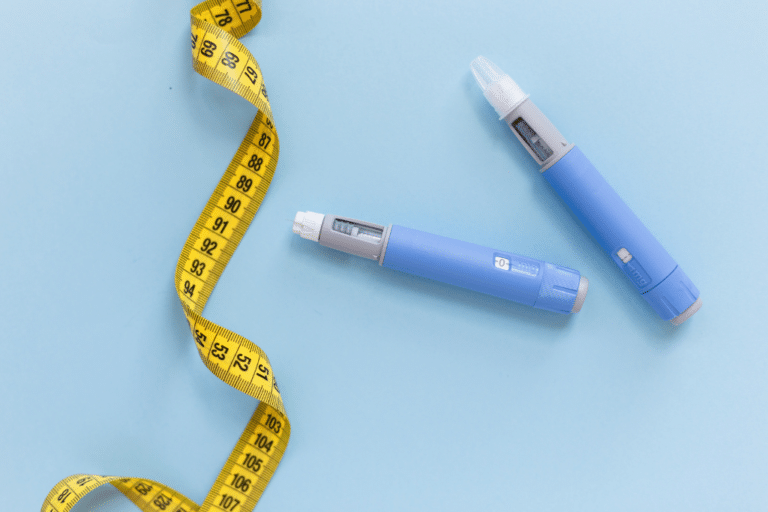As we head into the holidays, many of us will sit down to enjoy meals with our quaranteam. For many of us, this is a pleasant experience, but for others, it can be a huge pain- literally gut-wrenching.
Does Any of This Sound Familiar?
- You wake up with a flat stomach and go to bed feeling six months pregnant.
- You feel bloated and gassy more often than not.
- You’re practically chained to the bathroom with either diarrhea or constipation.
If so, you may have SIBO!
SIBO, or small intestinal bacterial overgrowth, affects millions of people… but not all of them know it. That’s because SIBO is often left undiagnosed, or is misdiagnosed as something else.
[bctt tweet=”SIBO, or small intestinal bacterial overgrowth, affects millions of people… but not all of them know it. #SIBO #smallintestinebacterialovergrowth #bloating #gas #IBS #FODMAPsdiet #antimicrobialherbs #rifaximin #DrAnnaGarrett #AnnaGarrettAsheville” username=”DrAnnaGarrett”]
What is SIBO?
SIBO stands for Small Intestine Bacterial Overgrowth. The small intestine is where food mixes with digestive juices and nutrients are absorbed into your bloodstream. Normally, your small intestine has low levels of bacteria. But with SIBO, food doesn’t move along exactly as it should. This creates a breeding ground for bacteria. The imbalance between the helpful and harmful bacteria in the small intestines leads to a painful problem.
Symptoms of SIBO
SIBO symptoms mainly affect the gut but may also manifest as fatigue or brain fog. Common symptoms include:
- Pain in the stomach, especially after eating
- Bloating
- Cramps
- Diarrhea
- Gas
- Regular feeling of fullness
- Constipation
The effects of SIBO can extend beyond gastrointestinal symptoms. The excess levels of bacteria release acids which cause neurological symptoms like brain fog and fatigue. Also, the imbalance of bacteria can cause a phenomenon known as “leaky gut”- leading to food sensitivities and nutrient deficiencies (Vitamin B12 and iron to name a few).
Underlying Causes of SIBO
Having a chronic condition or surgery that affects your gastrointestinal (GI) tract can put you at risk of SIBO. Certain disease states or medications you are taking can also increase your risk including:
- Diabetes
- Fibromyalgia
- Obesity
- IBS or IBD
- Chronic stress
- Excess estrogens
- Hypochlorhydria (insufficient stomach acid)
- Crohn’s disease
- Hypothyroidism
- Medications that slow your gut down (narcotics) or change the pH of your gut (proton pump inhibitors)
Diagnosis of SIBO
Diagnosis of SIBO can occur through several different testing methods. The first is to take bacterial cultures of small intestine fluid. The second, the lactulose breath test, is more commonly used because it is less invasive.
Lactulose is a manmade sugar that humans cannot digest, but bacteria love. When bacteria digest food, they produce gas and are exhaled when you breathe them out. The breath samples that are collected get tested for levels of methane (constipation-predominant) and hydrogen sulfide (diarrhea- predominant). Your health care professional is able to tell where bacteria are fermenting and how much gas they are producing.
Treatment of SIBO
The goals of treating SIBO are to:
- Remove the foods that feed it.
- Attack the bad bacteria and eliminate them.
- Replace the beneficial bacteria.
Foods to Avoid With SIBO
The low-FODMAP diet has been to treat irritable bowel syndrome (IBS) and related symptoms. Often those suffering from IBS also suffer from SIBO. Eliminating or reducing foods high in these carbs can improve your digestive health.
When eliminating FODMAPs from your diet, focus on the main categories, including:
- Fructose, simple sugars commonly found in fruits and some vegetables, honey, and agave nectar.
- Lactose, a sugar molecule in dairy products.
- Fructans, a sugar compound found in gluten products, fruits, some vegetables, and prebiotics.
- Galactans, a compound found in some legumes.
- Polyols, a sugar alcohol often used as a sweetener.
You can learn more about dietary changes here: https://www.healthline.com/health/sibo-diet
Other dietary recommendations may include:
- Medium-chain triglycerides: Replacing regular oils with medium-chain triglycerides (such as coconut oil) are recommended for individuals who suffer from SIBO. Medium-chain triglycerides are absorbed directly without the need for digestive enzymes.
- Digestive enzymes: supplements that contain digestive enzymes improve digestion until gut function is restored. They should be taken before meals.
- Vitamins and minerals: that may be deficient in individuals with bacterial overgrowth include Vitamin B12, Vitamins A, D, E, and K, magnesium, calcium, iron, zinc, and copper.
- Probiotics: replace the healthy bacteria in the gut. This must be done with care as some probiotics can actually make SIBO worse. Work with a provider who has experience with SIBO before choosing a probiotic. Here is one I have had great success with.
Antimicrobial Herbal Supplements
A mutli-center study found antimicrobial herbal therapies as least as effective as pharmaceutical antibiotics with similar response rates and safety profiles. Some of the supplements used are:
- Enteric-coated peppermint oil
- Grapefruit seed extract
- Oregano oil capsules
- Garlic
- Berberine
- Goldenseal
- Pau d’arco
- Olive leaf extract
Antibiotic Therapy for SIBO
Rifaximin is an antibiotic that is commonly used for SIBO. For methane-predominant SIBO, neomycin may be added because it is harder to treat. The course of antibiotics may be followed with antimicrobial herbs to prevent a recurrence.
Keep in mind that food sensitivities and other microbial imbalances may be causing your symptoms. The most important part of successful management of SIBO is finding a health care professional well versed in this disease state. He or she will coach you using a root cause analysis, taking a deeper dive into WHY this happened in the first place, and how to prevent it from occurring again.
Dr. Anna Garrett is a menopause expert and Doctor of Pharmacy. She helps women who are struggling with symptoms of perimenopause and menopause find natural hormone balancing solutions so they can rock their mojo through midlife and beyond. Dr. Anna is the author of Perimenopause: The Savvy Sister’s Guide to Hormone Harmony. Order your copy at www.perimenopausebook.com.
Dr. Anna is available for 1-1 consultations. Find out more at www.drannagarrett.com/lets-




